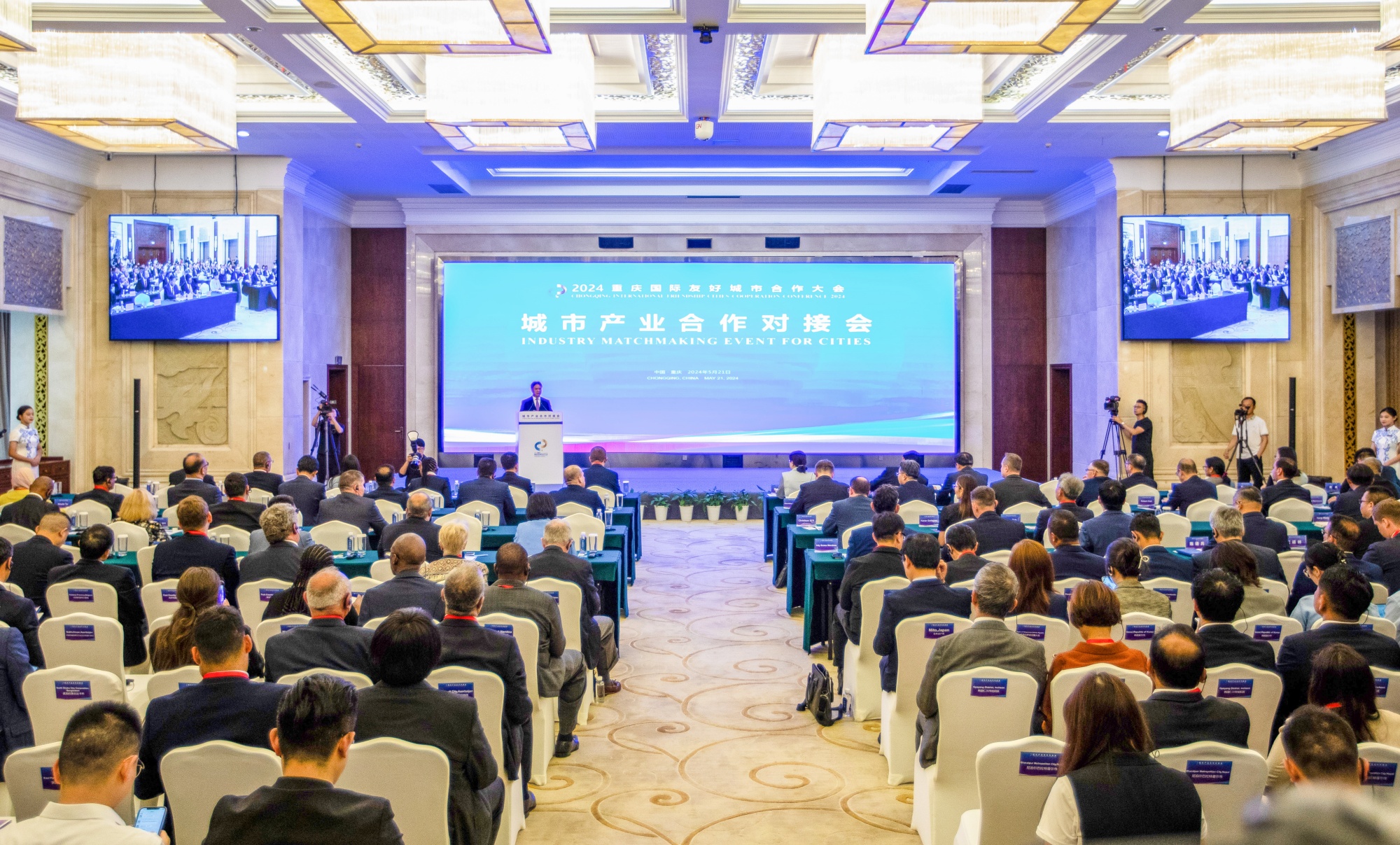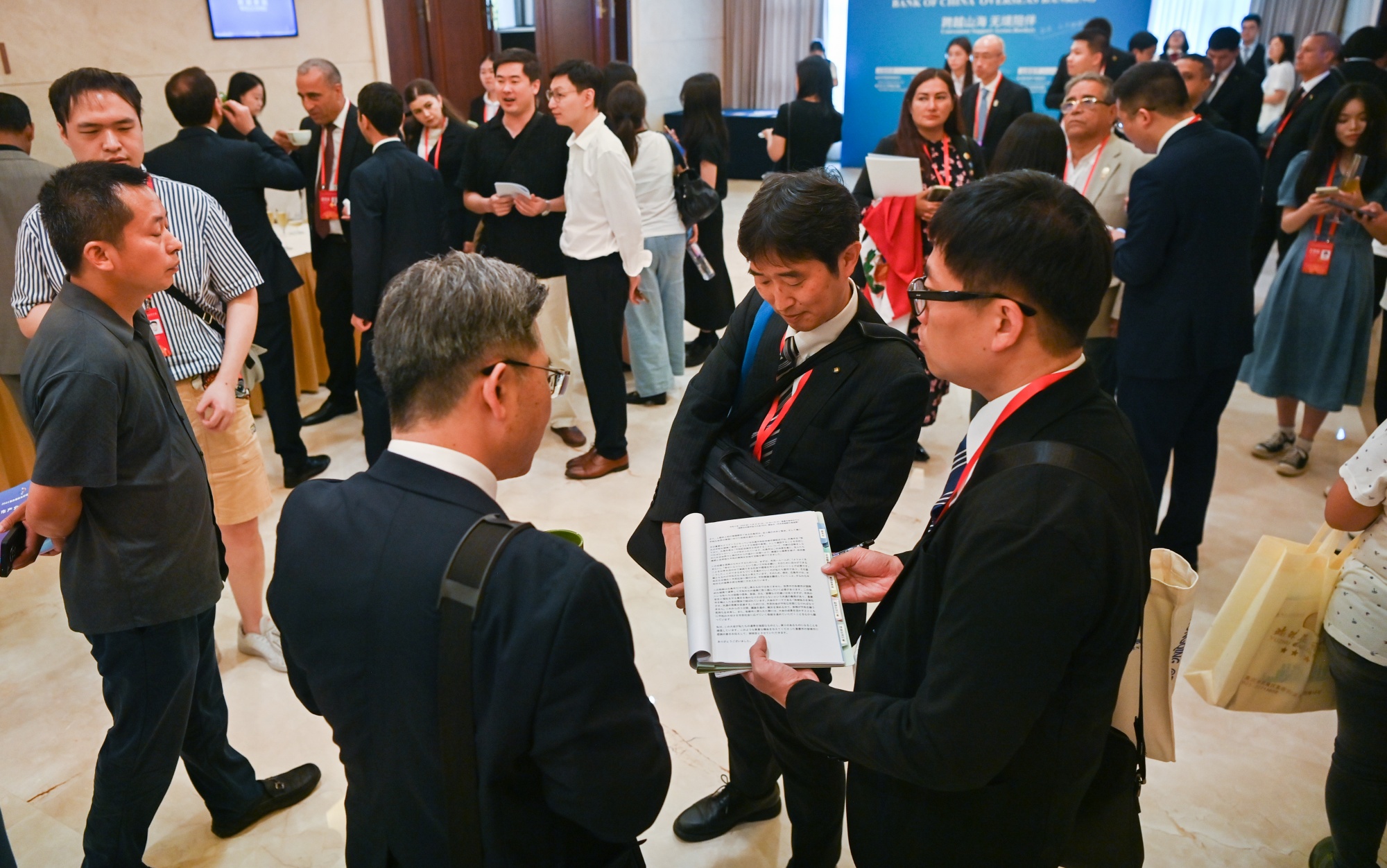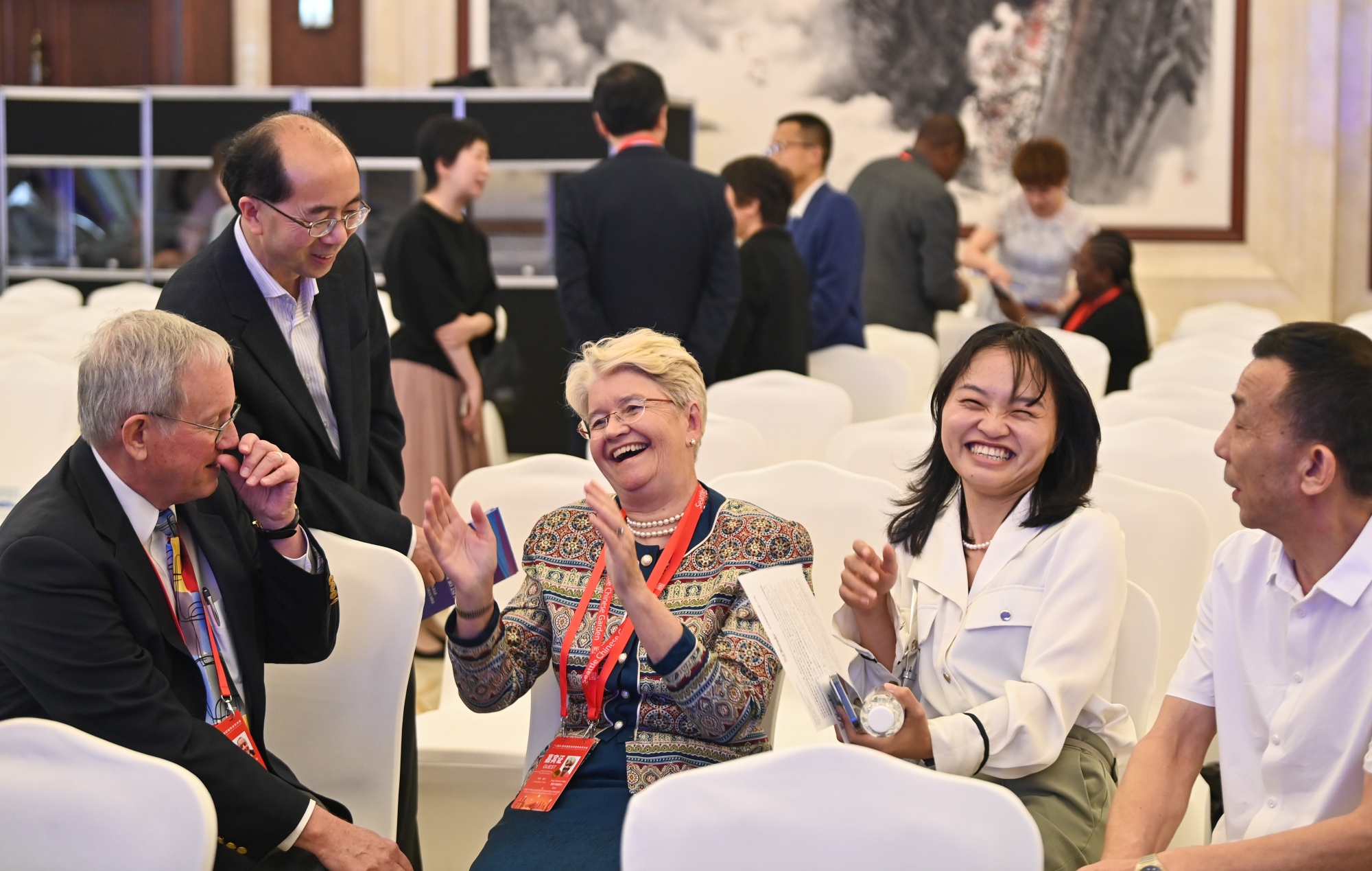 Bridging News
Bridging News
Industry Matchmaking Event for Cities Kicked Off in Chongqing
Chongqing - The 2024 Chongqing International Friendship Cities Cooperation Conference officially commenced on May 22. A highlight of the conference, the "Industry Matchmaking Event for Cities," was successfully held on the afternoon of May 21, attracting 42 delegations from 27 countries to explore cooperation opportunities and showcase business prospects.

The "Industry Matchmaking Event for Cities" was successfully held on the afternoon of May 21. (Photo/Long Fan and Yin Shiyu from Chongqing Daily)
This matchmaking event underscored the significance of industrial cooperation for urban economic development. Attending guests expressed strong interest in Chongqing and anticipation for potential collaborations, creating a vibrant atmosphere.
Luther Akisawa Wenge, Governor of Morobe Province in Papua New Guinea remarked, "The appearance of a city can showcase and reflect the character, wisdom, design capability, and management level of its builders and inhabitants." Through his observations of Chongqing, Wenge understood why the city could attract numerous delegations from international sister cities. He hopes to deepen cooperation with Chongqing by opening international passenger and cargo flights between Chongqing and Morobe, establishing a university in Morobe, and introducing Chinese medical personnel.

International guests engaged in on-site discussions after the event. (Photo/Long Fan and Yin Shiyu from Chongqing Daily)
János Ádám Karácsony, Vice President of Pest County Council in Hungary, noted the similarities between Pest County and Chongqing in the development of the automobile industry. Hungary is one of Europe's largest logistics hubs and a crucial electric vehicle and battery industry base. Chongqing, a major automobile manufacturing city in China, produced 2.32 million vehicles in 2023, including over 500,000 new energy vehicles. Karácsony revealed plans to open four to six dealerships in Hungary this year to represent premium Chinese automobile products, with an expected output value of 4 billion euros (approximately 4.4 billion US dollars).
Christiaan SYS, the Consul-General of the Embassy of Belgium in China, shared Belgium's experiences in ecological sustainability and commended Chongqing's efforts in protecting the Yangtze River basin and constructing sponge cities. He believes that the two cities share similar ecological philosophies.

International guests engaged in on-site discussions after the event. (Photo/Long Fan and Yin Shiyu from Chongqing Daily)
Lee Haewoo, Deputy Mayor for Economic Policy, Seoul Metropolitan Government Republic of Korea, expressed great interest in Chongqing's achievements in the life and healthcare sector and its abundant university resources. Seoul boasts 54 universities, graduating 130,000 students annually, while Chongqing has over 70 universities, with an estimated 367,000 graduates. Lee stated that Seoul is committed to promoting universities as entrepreneurship hubs, leveraging the talent and startups cultivated by universities to develop an industrial map focusing on biomedicine, smart technology, robotics, and artificial intelligence.
Yakimau Piotr, First Deputy Head of the Great Stone Industrial Park Administration, introduced the China-Belarus Industrial Park, a Belt and Road Initiative project jointly promoted by the two countries. Currently, the park hosts 133 enterprises from 14 countries, with a planned total investment of over 1.47 billion US dollars and an actual investment of approximately 880 million US dollars.
Ye Lina, Deputy Director of the Chongqing Municipal Commission of Commerce, detailed Chongqing's business opportunities and international business environment at the meeting. She emphasized that collaborating with New Chongqing means leveraging its strategic position as a gateway to both land and sea. Ye comprehensively promoted New Chongqing from aspects such as platform functions, market prospects, industrial foundation, policy incentives, and business environment. According to statistics, Chongqing currently operates 37 international (regional) passenger and cargo routes, directly facilitating investments and trade worth over 34 billion yuan (approximately 4.76 billion US dollars) through sister city channels in 2023.
 Related Stories
Related Stories